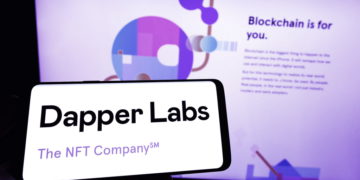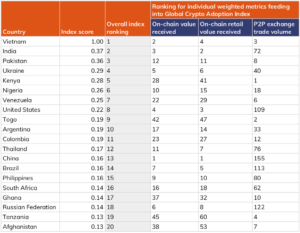
By sending money to the Blast contract, you’re basically trusting 3-5 strangers to stake your funds for you.
You won’t be able to withdraw that money at any point in time unless those 3-5 people decide to do the right thing in the future.
Again, there’s no bridge here.
(14/24)
— Jarrod Watts (@jarrodWattsDev) November 23, 2023
1/ There’s a meme going around that Blast is a ponzi. The yield that Blast provides users can feel too good to be true, so this meme is understandable. But to put it simply, the yield Blast provides comes (initially) from Lido and MakerDAO.
Lido yield comes from ETH staking…
— Pacman | Blur + Blast (@PacmanBlur) November 24, 2023
important to clarify that this statement is false.
while i am of the opinion that staking needs to be made as close to risk-free as possible, we are not there today. there are governance, contract, and operator risks involved.
anyone using Blast needs to keep these in mind https://t.co/8z9dVJhr6J
— sacha💧 (@sachayve) November 21, 2023
Stay on top of crypto news, get daily updates in your inbox.
- SEO Powered Content & PR Distribution. Get Amplified Today.
- PlatoData.Network Vertical Generative Ai. Empower Yourself. Access Here.
- PlatoAiStream. Web3 Intelligence. Knowledge Amplified. Access Here.
- PlatoESG. Carbon, CleanTech, Energy, Environment, Solar, Waste Management. Access Here.
- PlatoHealth. Biotech and Clinical Trials Intelligence. Access Here.
- Source: https://decrypt.co/207489/ethereum-layer-2-blast-has-400-million-locked-in-just-4-days-despite-concerns
- :has
- :is
- :not
- $400 Million
- $UP
- 000
- 10
- 13
- 14
- 15%
- 23
- 24
- 9
- a
- Able
- About
- Absolute
- actually
- adding
- Additional
- After
- aims
- also
- am
- an
- and
- Anonymous
- any
- ARE
- around
- AS
- At
- back
- Basically
- BE
- because
- Big
- blockchain
- blur
- BRIDGE
- Bringing
- but
- by
- CAN
- Cash
- Catch
- cheaper
- claimed
- claims
- Close
- come
- comes
- coming
- comment
- concerned
- Concerns
- continue
- contract
- costly
- crowded
- crypto
- Crypto News
- Crypto wallet
- Current
- daily
- Dangerous
- Dark
- Days
- decentralized
- Decentralized Finance
- decide
- Decrypt
- Default
- DeFi
- DeFi llama
- deposit
- depositing
- Despite
- Developer
- developers
- DID
- do
- earn
- easier
- engineer
- entirely
- ETH
- eth staking
- Ether (ETH)
- ethereum
- ethereum scaling
- Ethereum's
- Even
- everyone
- execute
- external
- false
- far
- FAST
- February
- feel
- feels
- Figure
- finance
- five
- For
- form
- formerly
- Friday
- from
- funds
- future
- get
- Goes
- going
- good
- governance
- Growing
- Have
- he
- hear
- here
- higher
- hope
- HTTPS
- i
- idea
- ideas
- immediately
- in
- Including
- initially
- interest
- INTEREST RATE
- internal
- into
- Invest
- investment
- Investors
- involved
- isn
- IT
- ITS
- itself
- just
- Keep
- keys
- known
- l2
- Labs
- large
- largest
- least
- Led
- LIDO
- like
- live
- Lives
- Llama
- locked
- lots
- loyal
- made
- major
- make
- MakerDao
- MAKES
- Market
- marketplace
- May..
- me
- Members
- meme
- million
- mind
- model
- money
- months
- much
- name
- nearly
- needs
- network
- networks
- New
- new ethereum
- news
- NFT
- nft marketplace
- no
- now
- of
- on
- ONE
- operator
- Opinion
- or
- Other
- out
- over
- part
- particular
- People
- plato
- Plato Data Intelligence
- PlatoData
- Point
- ponzi
- Ponzi Scheme
- possible
- potentially
- project
- projects
- promises
- promising
- provides
- put
- Questions
- quicker
- Rate
- RE
- reached
- reason
- receive
- refer
- relative
- remaining
- returns
- Rewards
- right
- Rise
- risks
- Risky
- s
- safe
- Said
- same
- scaling
- scene
- scheme
- sending
- sign
- simply
- sizable
- slow
- So
- so Far
- sometimes
- Space
- Stablecoins
- stake
- Staked
- Staking
- stands
- Statement
- sudden
- sums
- T
- talking
- that
- The
- The Future
- their
- There.
- These
- thing
- things
- this
- this week
- those
- three
- time
- to
- today
- too
- top
- Total
- total value locked
- Traders
- Transactions
- true
- trusting
- TVL
- types
- understandable
- until
- upcoming
- Updates
- users
- using
- value
- Wallet
- was
- we
- week
- whether
- WHO
- will
- with
- withdraw
- Won
- writing
- wrote
- X
- yet
- Yield
- yields
- you
- Your
- zephyrnet












